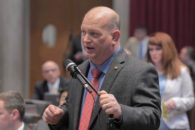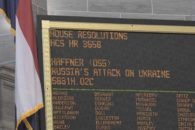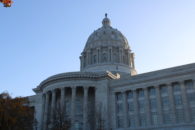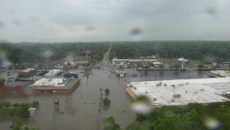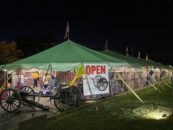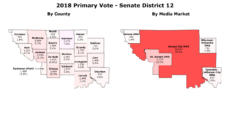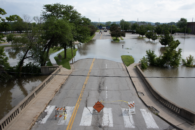The Spire STL Pipeline was granted a temporary certificate to continue operating for 90 days, giving the project time to regroup and focus its engagement efforts ahead of winter.
The Federal Energy Regulatory Commission (FERC) granted the certificate Monday evening, allowing the pipeline to remain active while the commission considers Spire’s application for an emergency certificate to keep the system online.
“This gives us the opportunity to breathe,“ Sean Jamieson, Spire’s general counsel, told The Missouri Times. “We wanted the opportunity to meaningfully engage on a complex issue, but not under the threat that customers in St. Louis or the region as a whole would be facing a gap in service beginning the very next day. You can’t have a robust debate at that point, and there shouldn’t be a debate on whether or not people should have natural gas in their homes.”
Jamieson said the time would be spent engaging stakeholders and fielding additional questions from FERC. Spire will also undertake land restoration projects along the project line.
Commissioner James Danly was the sole dissenting voice during Monday’s meeting, arguing the certificate violated the law and wasn’t an adequate step.
“I question the reasons for issuing a temporary certificate for any period shorter than the whole of winter,” Danly said. “One wonders why the commission has taken such a parsimonious approach toward Spire when it was the deficiency of our order, not any action of Spire’s, that has put us where we are.”
A three-judge panel on the U.S. Court of Appeals for the D.C. Circuit vacated the project’s approval by FERC in June, remanding the issue back to the commission two years after the 65-mile pipeline began providing natural gas service to the St. Louis area. Spire applied for a rehearing before the full court last month, but the request was denied by the three judges last week.
Spire also filed a motion for a 90-day stay of the court’s order to vacate Monday, a move that will itself stay the order while the court considers the application. He said Spire was pursuing both legal and regulatory options to continue providing service to the region.
The Environmental Defense Fund (EDF) initially sued the project, arguing FERC failed to prove the pipeline’s benefits would outweigh its environmental impact.
FERC is chaired by Richard Glick, who opposed the pipeline’s approval when it was before the commission in 2018. Glick took a similar position to EDF’s at the time, arguing Spire and FERC failed to adequately demonstrate the need for the operation. He did not dissent from Monday’s decision.
If taken offline, the project would leave 175,000-400,000 customers in the region without service, with a gap lasting up to 100 days before another source is connected, Spire said. Its filings noted the impact of February’s winter storm and the possibility of mass outages if a similar event were to occur while the system remains in flux.
Missouri’s Public Service Commission (PSC), FERC’s state counterpart, is investigating contingencies for customers in case the pipeline is shut down.

Cameron Gerber studied journalism at Lincoln University. Prior to Lincoln, he earned an associate’s degree from State Fair Community College. Cameron is a native of Eldon, Missouri.
Contact Cameron at cameron@themissouritimes.com.


